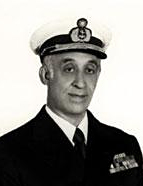

Avelino Teixeira da Mota’s scientific work must be seen against the background of the progressive in-depth renovation of the sciences that took place in Portugal in the last quarter of the 19th and the first half of the 20th centuries. This renewal process was driven by members of the “Generation of the 1870s”: Oliveira Martins, Antero de Quental, Jaime Batalha Reis, Adolfo Coelho and Teófilo Braga. Their efforts were continued in the first thirty years of the following century through António Sérgio’s critical thinking, Duarte Leite’s highly rigorous historiographical analyses and Jaime Cortesão’s erudition, and further extended in the three decades after that (1940s-1960s) in the fruitful lessons on Portuguese culture given by Joaquim de Carvalho (1892-1958), the scholarship of Damião Peres (1889-1976) and the productive works of Armando Cortesão (1891-1978), Luís de Albuquerque (1917-1992), Joaquim Barradas de Carvalho (1920-1980), Luís de Matos (1911-1995), Jorge Borges de Macedo (1921-1996) and Vitorino Magalhães Godinho (1918-). Nor should we overlook or underestimate the role played by other disciplines, such as anthropology and geography, which had a direct influence on the historiographical output of the time and helped ensure its renovation. In this respect we should especially note the contributions made by the anthropologist Jorge Dias and the geographers Amorim Girão and Orlando Ribeiro; indeed, Teixeira da Mota said he was a follower of the latter.
The period between 1922 and 1937 saw the publication of two major histories of Portugal. One, by Fortunato de Almeida, bore a markedly individual stamp. The other was a collective work directed by Damião Peres. Jaime Cortesão, David Lopes, João Lúcio de Azevedo, Joaquim de Carvalho and Queiroz Veloso were just some of the authors who participated in this “monumental” História de Portugal, which became a reference in Portuguese historiography. In addition to these two, three more 1930s works were to play a fundamental part in the field of studies on the Discoveries and cartographic and nautical history: História da Expansão Portuguesa no Mundo (“History of the Portuguese Expansion in the World”, 1936-1940), which was directed by António Baião, Hernâni Cidade and Manuel Múrias; the "Obras Completas" (“Complete Works”) of Luciano Pereira da Silva (1943-1946); and Descobrimentos Portugueses (“Portuguese Discoveries”, 1944-1971) by João da Silva Marques, which contained several hundred valuable documents, in a publication that was only to be completed later on. These were just some of the instruments available to anyone who began to research the history of the Discoveries and nautical and cartographic history in the mid-1940s.
